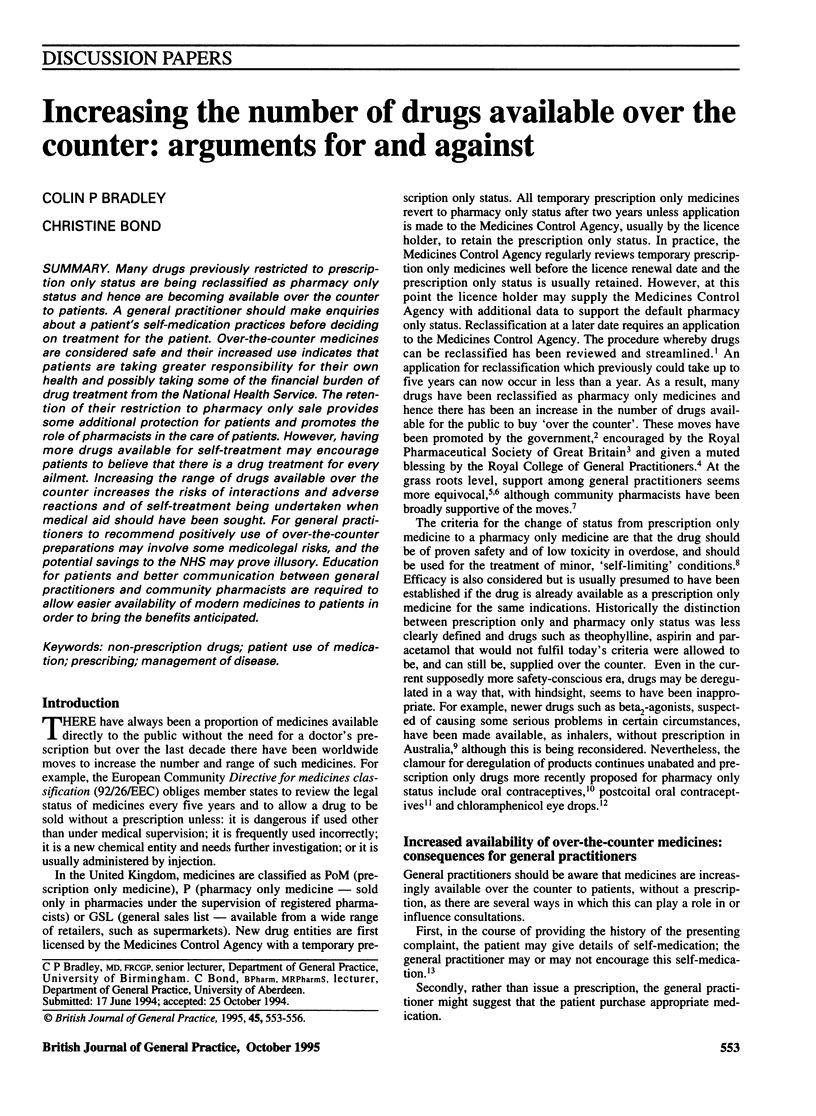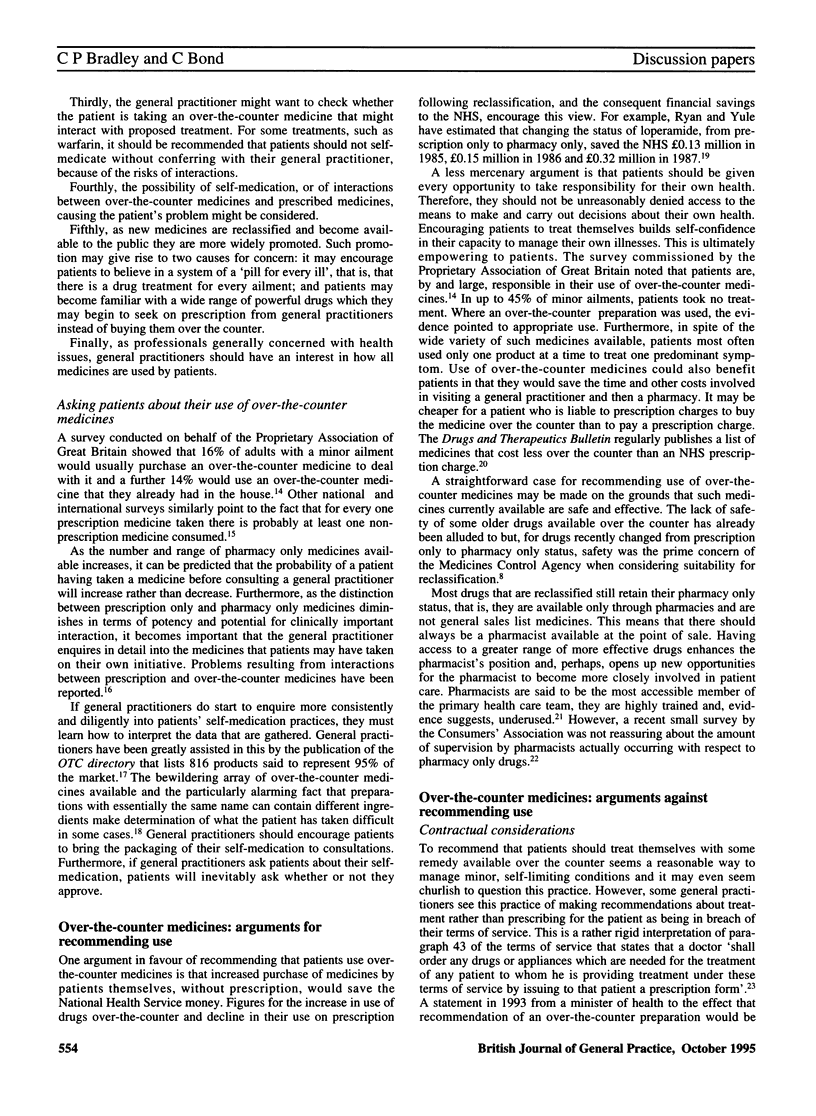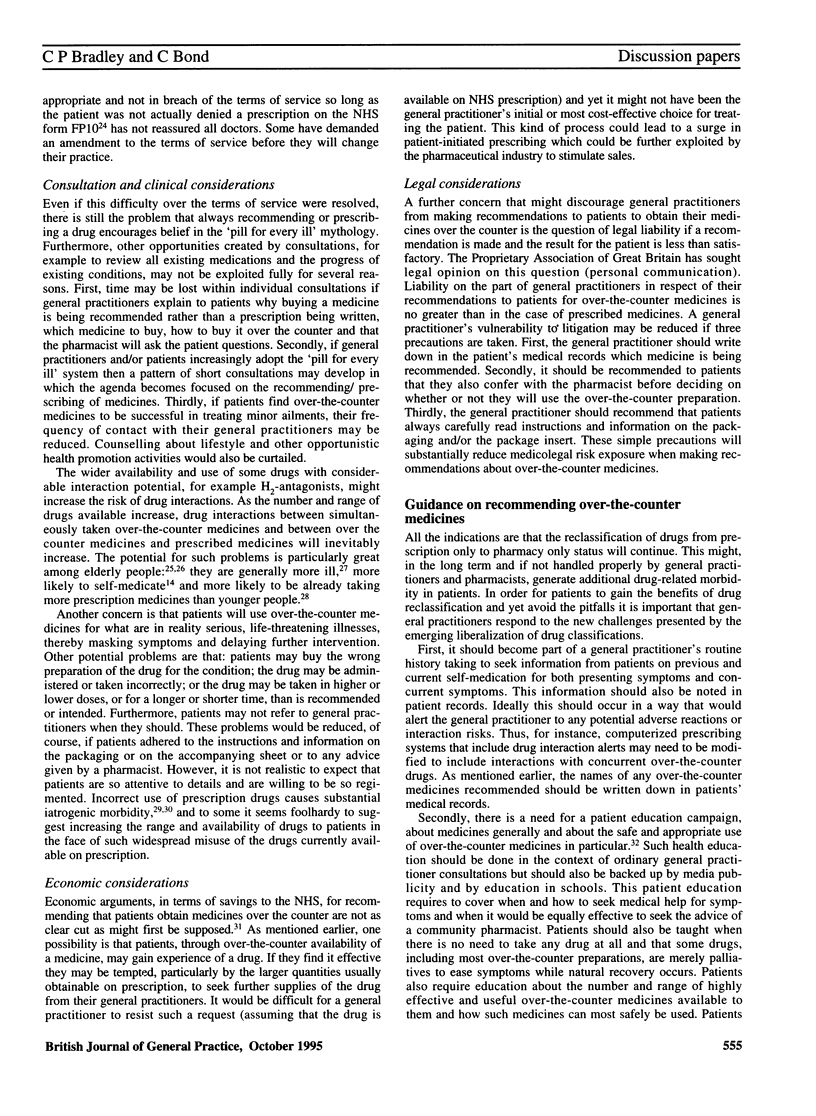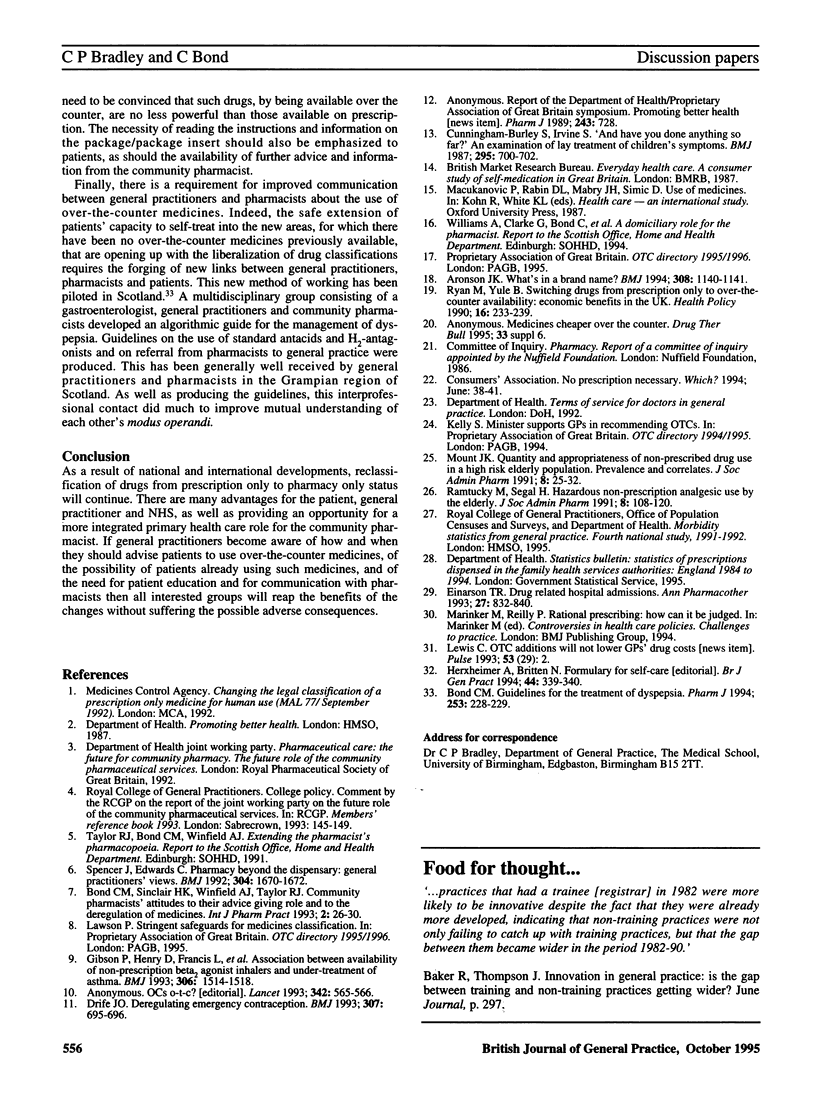Abstract
Many drugs previously restricted to prescription only status are being reclassified as pharmacy only status and hence are becoming available over the counter to patients. A general practitioner should make enquiries about a patient's self-medication practices before deciding on treatment for the patient. Over-the-counter medicines are considered safe and their increased use indicates that patients are taking greater responsibility for their own health and possibly taking some of the financial burden of drug treatment from the National Health Service. The retention of their restriction to pharmacy only sale provides some additional protection for patients and promotes the role of pharmacists in the care of patients. However, having more drugs available for self-treatment may encourage patients to believe that there is a drug treatment for every ailment. Increasing the range of drugs available over the counter increases the risks of interactions and adverse reactions and of self-treatment being undertaken when medical aid should have been sought. For general practitioners to recommend positively use of over-the-counter preparations may involve some medicolegal risks, and the potential savings to the NHS may prove illusory. Education for patients and better communication between general practitioners and community pharmacists are required to allow easier availability of modern medicines to patients in order to bring the benefits anticipated.
Full text
PDF



Selected References
These references are in PubMed. This may not be the complete list of references from this article.
- Aronson J. K. What's in a brand name? BMJ. 1994 Apr 30;308(6937):1140–1141. doi: 10.1136/bmj.308.6937.1140. [DOI] [PMC free article] [PubMed] [Google Scholar]
- Cunningham-Burley S., Irvine S. "And have you done anything so far?" An examination of lay treatment of children's symptoms. Br Med J (Clin Res Ed) 1987 Sep 19;295(6600):700–702. doi: 10.1136/bmj.295.6600.700. [DOI] [PMC free article] [PubMed] [Google Scholar]
- Drife J. O. Deregulating emergency contraception. BMJ. 1993 Sep 18;307(6906):695–696. doi: 10.1136/bmj.307.6906.695. [DOI] [PMC free article] [PubMed] [Google Scholar]
- Einarson T. R. Drug-related hospital admissions. Ann Pharmacother. 1993 Jul-Aug;27(7-8):832–840. doi: 10.1177/106002809302700702. [DOI] [PubMed] [Google Scholar]
- Gibson P., Henry D., Francis L., Cruickshank D., Dupen F., Higginbotham N., Henry R., Sutherland D. Association between availability of non-prescription beta 2 agonist inhalers and undertreatment of asthma. BMJ. 1993 Jun 5;306(6891):1514–1518. doi: 10.1136/bmj.306.6891.1514. [DOI] [PMC free article] [PubMed] [Google Scholar]
- Herxheimer A., Britten N. Formulary for self-care. Br J Gen Pract. 1994 Aug;44(385):339–340. [PMC free article] [PubMed] [Google Scholar]
- Ryan M., Yule B. Switching drugs from prescription-only to over-the-counter availability: economic benefits in the United Kingdom. Health Policy. 1990 Dec;16(3):233–239. doi: 10.1016/0168-8510(90)90424-c. [DOI] [PubMed] [Google Scholar]
- Spencer J. A., Edwards C. Pharmacy beyond the dispensary: general practitioners' views. BMJ. 1992 Jun 27;304(6843):1670–1672. doi: 10.1136/bmj.304.6843.1670. [DOI] [PMC free article] [PubMed] [Google Scholar]


